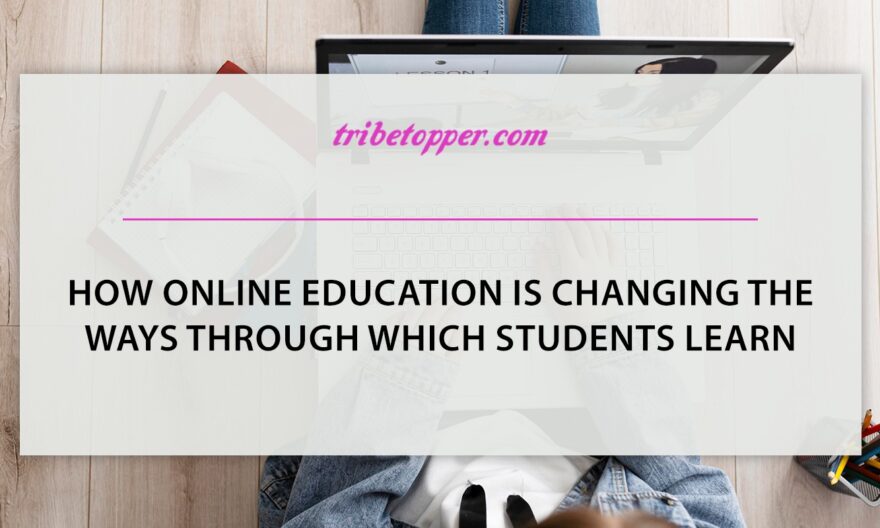
Education is incredibly important for individuals and societies. It is of paramount importance for personal growth, economic prosperity, social mobility, health, civic engagement, and cultural preservation. It is a fundamental human right that empowers individuals and societies, driving progress and creating a brighter future for all.
JOIN US FOR MORE ON:
or
or Follow us on WhatsApp Channel
Today is the world of digitalization and globalization where everyone is connected to every other person in different corners of the globe. That we are sharing our knowledge here is self-explanatory when we talk of globalization in the context of the advent of technology. This is the vast arena to make the discussion in a direction we would like to talk specifically about the New face of Tech Education which has evolved mainly due to technology.
In recent years, online education has emerged as a powerful force, revolutionizing the way students learn and acquire knowledge. With advancements in technology and the widespread availability of internet access, online education has provided students with new opportunities to engage in learning beyond traditional classroom settings. Although it is extremely evident now, it was challenging back then to even compare traditional and online schooling.
Today, however, technology has completely changed the way we study and created a myriad of new options for both teachers and students.
This essay explores the transformative impact of online education on student learning, highlighting its benefits, challenges, and the way it reshapes educational practices through Mock Papers.
Accessibility and Flexibility:
One of the most significant advantages of online education is its accessibility and flexibility. Students no longer need to be physically present in a specific location to attend classes. Online platforms enable individuals to access educational materials and resources from anywhere, at any time, regardless of geographical limitations. This flexibility allows students to personalize their learning experience and balance their academic pursuits with other commitments, such as work or family responsibilities. As a result, online education expands learning opportunities for those who would otherwise face barriers to education, such as individuals with disabilities, working professionals seeking career advancement, or students in remote areas.
Customization and Personalization:
Online education empowers students with the ability to tailor their learning experience to suit their individual needs and preferences. Through adaptive learning technologies and personalized learning platforms, students can receive targeted instruction and practice activities that cater to their unique strengths and weaknesses. This individualized approach to learning enhances student engagement and motivation, as they can progress at their own pace and revisit concepts as needed. Additionally, students can pursue specialized interests that might not be easily accessible in conventional educational institutions because of the variety of online courses and programs that are offered.
Interactive and Engaging Learning Experiences:
Online education has transformed the traditional passive learning model into an interactive and engaging experience. Through multimedia resources, virtual simulations, and gamification techniques, online platforms provide students with dynamic and immersive learning environments. Interactive elements, such as quizzes, discussion forums, and virtual collaborations, promote active participation, critical thinking, and knowledge retention with Online Sample Papers. Additionally, the integration of social media and communication tools fosters peer-to-peer learning and collaboration, enabling students to connect and share ideas with their peers and educators from around the world.
Diverse Learning Resources and Global Perspective:
The internet’s vast resources offer students unparalleled access to a wide range of educational materials and perspectives. Online education platforms like Tribe Topper often provide multimedia content, e-books, academic journals, and recorded lectures, granting students access to knowledge from renowned experts and institutions worldwide. This exposure to diverse perspectives promotes cultural understanding, global awareness, and the development of critical thinking skills. Students can explore different viewpoints, engage in cross-cultural discussions, and broaden their horizons beyond their local context, contributing to a more inclusive and globally competent society.
Challenges and Considerations:
While online education presents numerous benefits, it also poses challenges that need to be addressed. Reliable internet access and digital literacy are prerequisites for effective online learning, making accessibility a concern in underserved communities. Moreover, the absence of face-to-face interactions in online settings may impact the social and emotional aspects of learning. Institutions and educators must ensure adequate support structures, such as virtual counseling services and opportunities for peer collaboration, to address these challenges and promote holistic student development.
In conclusion, online education has ushered in a transformative era in student learning. It has revolutionized accessibility, providing students with greater flexibility to pursue education regardless of geographical limitations. The customization and personalization of online education cater to individual learning needs, while interactive and engaging experiences promote active participation and critical thinking. The availability of diverse resources and global perspectives broadens students’ horizons, fostering more inclusive development.
Originally posted 2023-06-02 12:41:04.
